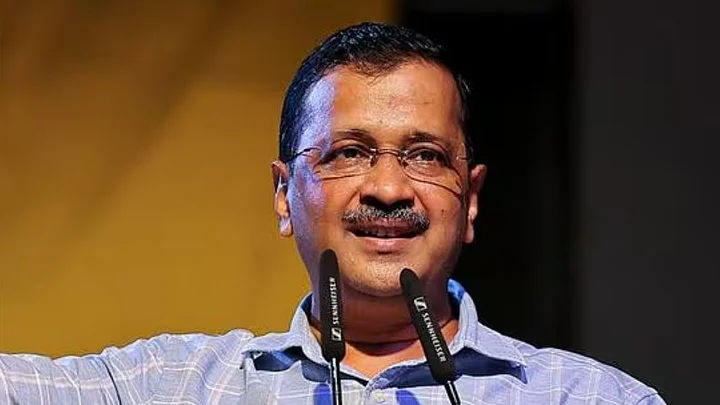The last article reflected on a three-purpose strategy emerging from the Bharatiya Janata Party's (BJP) political rule book that weaponises central agencies. Delhi Chief Minister Arvind Kejriwal’s recent arrest is a part of this political coup.
This author had earlier mentioned how the Prevention of Money Laundering Act, 2002 (PMLA) has been a key legal instrument used by the Enforcement Directorate (ED) (in concert with the will and actions of the ruling party) to target Opposition leaders and government critics.
Let’s take a closer look into the draconian nature of this act and the consequential implications of its misuse.
Saranya Ravindran’s legal column here provides critical details on the PMLA and its provisions. I rely on her legal interpretations drawn here.
According to Ravindran:
"The Prevention of Money Laundering Act, 2002 (PMLA) allows the confiscation of property allegedly involved in money laundering by the Enforcement Directorate (ED) without a hearing, under specified circumstances. To safeguard against potential abuse, Section 6 establishes an Adjudicating Authority to call upon an aggrieved party to show cause as to why the confiscated property must be released. The power that the Adjudicating Authority wields is immense, even if it is only exercisable on an interim base. Its exercise has so far been rife with various issues, most recently reflected in Justice Pratibha Singh’s caution to the Authority on passing 'templated orders' and to refrain from using 'identical templated paragraphs'. Such non-application of mind has the potential to cause serious prejudice to aggrieved parties. Hence, the presence of a balanced coram, mandatorily including judicial members outside the Executive, could make a meaningful difference to the operation of the Authority."
Placing More Accountability Onto the ED
We all know that the provisions of the UAPA (Unlawful Activities Provisions Act) have become the executive’s weapon of choice to keep any inconvenient individuals in jail for years without trial.
The PMLA too has seemingly become this government’s frequently used political weapon.
According to Gautam Bhatia, as he mentioned in a column, the court exempted the ED from sharing the equivalent of the police’s First Information Report (FIR) – the "ECIR" – with the accused, noting that communicating the “grounds” was enough.
It held that as an ED summons was not an "arrest” (even though functionally indistinguishable from it), the constitutional right against self-incrimination doesn’t apply to statements made under the ED's questioning as its officials weren’t "police officers”.
Confessions made to them were admissible in evidence (even though the whole purpose of making confessions to the police inadmissible was the fear of coercion); and because the ED wasn’t a police force (even though functionally indistinguishable from one), the procedures that it followed (the "ED manual") wasn’t required to be made public, but could remain an "internal document."
This is an important distinction to note.
The question is how to make the ED and the government more accountable for their own actions. It is for both the courts and the people to decide and act upon in this moment of history in India’s national politics.
Why Kejriwal is a Threat to the BJP and Modi
We are witnessing a political coup that impairs and imperils democratic conduct and behaviour in Indian political practice and its ethics (that have been regressing for far too long now).
For those wondering why there is much hue and cry about Kejriwal or any politician’s arrest (even if he is a sitting CM), given that he has been "allegedly” charged with corruption by the ED, there are critical points to be put into context and perspective.
The Delhi CM is a bigger threat to the BJP and Modi’s brand of politics than many may think. His 'nationalist' politics has been based on a carefully crafted formulation of applied social welfarism (built around the Delhi model) with fiscal prudence and a pro-growth vision (without tinkering much with communal issues).
The move to arrest him now has, therefore, very little to do with establishing the BJP’s electoral prospects in the upcoming elections and more so with its long-term strategy aimed at dismantling any possible threat to its power consolidation efforts, which Kejriwal’s brand of politics poses.
If they can project Kejriwal as 'corrupt' in the eyes of the public, his political work and vision can all be questioned. That’s what the BJP hopes and has been trying to achieve by jailing one Aam Aadmi Party (AAP) leader at a time.
Maybe because Kejriwal isn’t the typical Lutyen politician or someone who belongs to an old bygone era of an entitled regime (like some Congress party leaders), or someone whose nationalist vision relies on Nehruvian secularism, and is actually more contemporary than many out there, his words and speeches attract more national attention than any other Opposition leader.
Keeping these in mind, it is, therefore, critical for the judiciary to be aware of the larger political landscape and the context in which Kejriwal has been jailed.
(Deepanshu Mohan is Associate Professor and Director, Centre for New Economics Studies, Jindal School of Liberal Arts and Humanities, OP Jindal Global University. He is also Visiting Professor of Economics to Department of Economics, Carleton University, Ottawa, Canada. This is an opinion piece and the views expressed above are the author’s own. The Quint neither endorses, nor is responsible for them.)
